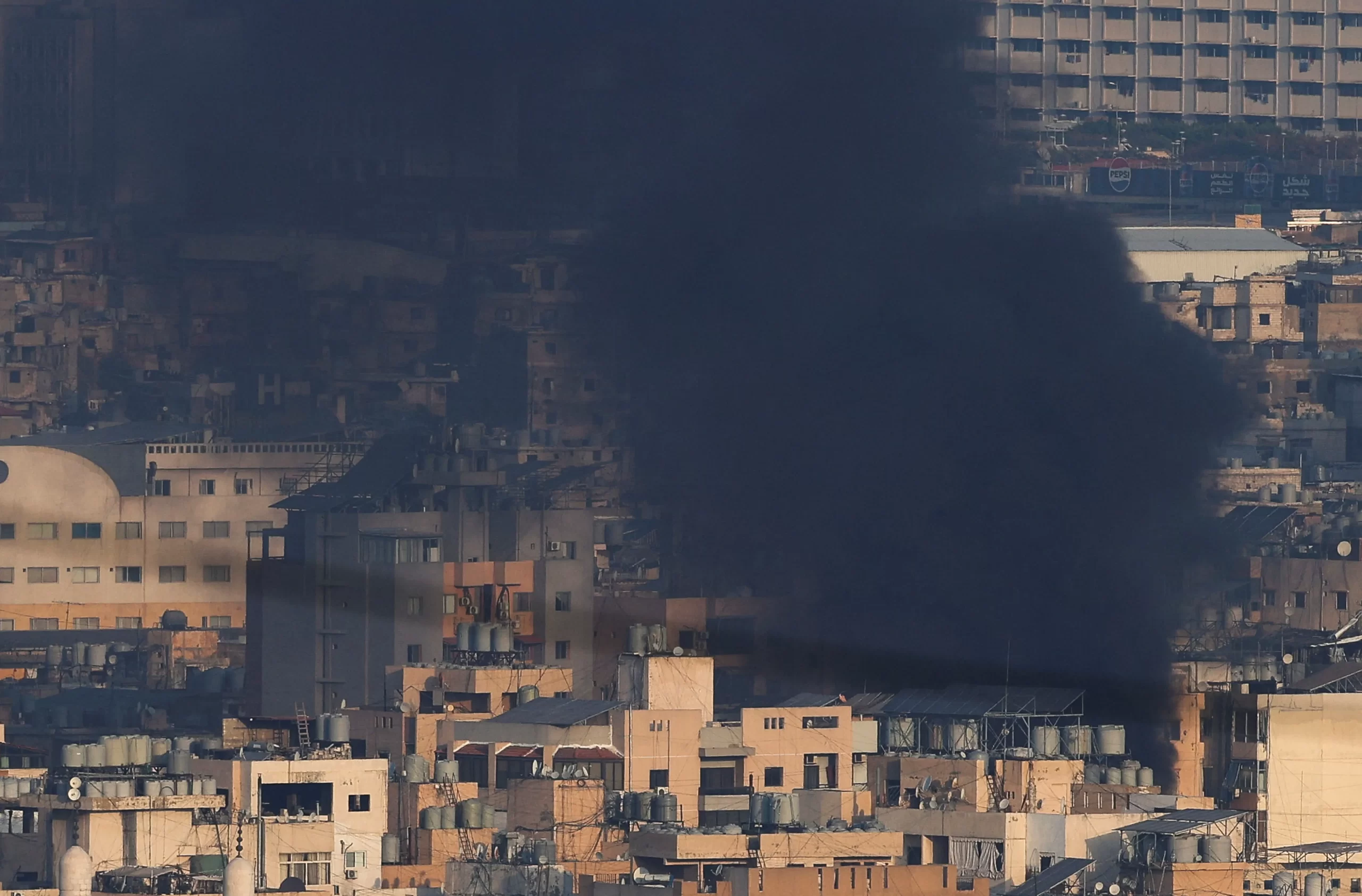
A South Lebanon municipal building is struck by an Israeli strike, killing the mayor and five people
The mayor of Nabatieh, a significant town in south Lebanon, and at least five other people were killed when Israel launched an airstrike on the municipal headquarters on Wednesday.
The incident sparked concerns that buildings and public officials, which have so far been spared in Israel’s growing air campaign to destroy Iran-backed Hezbollah, would increasingly be targeted.
The attack on the provincial capital was denounced by Najib Mikati, the caretaker prime minister of Lebanon, who said that it “intentionally targeted a meeting of the municipal council to discuss the city’s service and relief situation.”
Despite U.S. concerns over growing casualty counts and fears of full-scale war in the region, it was the biggest Israeli strike on a Lebanese state building since the attack began two weeks ago.
The interior minister confirmed the mayor’s death, while the health ministry reported six fatalities.
A Reuters reporter called Mayor Ahmed Kahil to inquire about his plans to depart Nabatieh, a city of tens of thousands, after Israel initially issued an evacuation order on October 3. I won’t, he said.
In coordination with ground forces, Israel’s military reported Wednesday that it had destroyed underground infrastructure and targeted dozens of Hezbollah targets in the Nabatieh region. The navy reportedly hit dozens of targets in southern Lebanon.
Israel is currently fighting the Palestinian insurgents Hamas in Gaza and Tehran’s allies Hezbollah in south Lebanon and the capital Beirut. After a similar large-scale operation in April, it is also getting ready to react for an Oct. 1 Iranian missile attack.
The Islamic Republic’s nuclear facilities or oil facilities might be attacked, which would severely damage Iran’s economy and drive up oil prices worldwide.
The likelihood of an attack on nuclear sites is low.
State atomic energy agency spokeswoman Behrouz Kamalvandi stated on Wednesday that while there is little chance of an attack on Iran’s nuclear sites, any possible harm would be “quickly compensated,” according to semi-official Nournews.
“These threats have always been taken seriously by us. We have made arrangements so that the harm would be limited in the event that they are foolish,” Kamalvandi stated.
According to Reuters witnesses, at least one Israeli airstrike struck the southern suburbs of Beirut earlier on Wednesday.
Witnesses for Reuters observed smoke plumes rising from two different areas and heard two explosions. It followed Israel’s early Wednesday evacuation order, which only referenced one building.
The U.S. had conveyed its concerns to Prime Minister Benjamin Netanyahu’s administration on the recent attacks on Beirut, according to State Department spokeswoman Matthew Miller on Tuesday.
The last time Beirut was struck was on October 10, when two strikes near the city center destroyed entire buildings in a very populated district and killed 22 people.
Hezbollah’s heartland, the southern suburbs of Beirut, has been the target of Israeli military strikes in recent weeks, either without prior warning or with a warning for one region while striking more widely.
On Wednesday, the Israeli military claimed to have hit an underground Hezbollah weapons cache in the Dahiyeh area of southern Beirut.
“Prior to the strike, numerous steps were taken to mitigate the risk of harming civilians, including advancing warnings to the population in the area,” according to the Israeli military.
As of now, Hezbollah has not responded.
NO CEASEFIRE SIGNAGE
While the United States claims it still supports Israel and has been supplying troops and an anti-missile system, other Western nations have been advocating for a truce in Gaza as well as between the two neighbors.
In addition to rejecting pleas for a truce, Natanyahu and his far-right cabinet have sworn to destroy Hezbollah and Hamas.
Mikati of Lebanon also seemed to question diplomatic attempts to achieve a truce on Wednesday.
“What can stop Israel, the enemy, from committing atrocities that have escalated to the point where it is attacking peacekeeping troops in the southern region? In light of this reality, what kind of resolution is hoped for?” he wrote in a statement.
The U.N. claims that two Israeli tanks broke past the gates of one of UNIFIL’s bases and that UNIFIL positions have been fired upon since Israel started its ground invasion. There have been five injuries to peacekeepers.
Despite pressure from Israel to withdraw, contributing European Union nations have no plans to do so, Austrian Foreign Minister Alexander Schallenberg stated.
Austria is one of 16 EU nations that contribute to UNIFIL, and the recent events have raised serious concerns among European governments.
According to Israel, it plans to drive Hezbollah back and permit tens of thousands of Israelis to safely return to their homes in northern Israel.
According to the health ministry, Israeli operations in Lebanon have resulted in at least 2,350 deaths, close to 11,000 injuries, and more than 1.2 million displaced persons over the past year. A fifth of the nation is under evacuation orders, according to the U.N.
Hundreds of women and children are included in the toll, which does not differentiate between soldiers and civilians.
Israel claims that about 50 Israelis, including both military and civilians, have been murdered in the same time frame.
All Categories
Recent Posts
Tags
+13162306000
zoneyetu@yahoo.com



